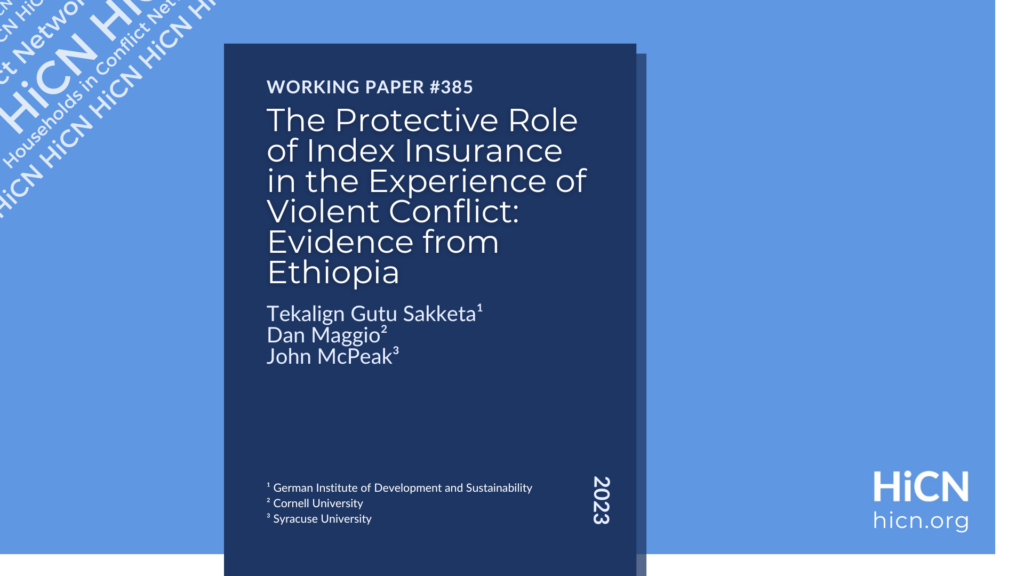
Droughts are among the leading causes of livestock mortality and conflict among pastoralist populations in East Africa. To foster climate resiliency in these populations, Index Based Livestock Insurance (IBLI) products have become popular. These products, which allow herders to hedge climate risk, often utilize remote-sensed data to trigger indemnity payouts, thus ameliorating moral hazard issues associated with standard insurance products. We study how one such program, implemented in the southern Ethiopia, impacted the experience of violent conflict among participating households. Using causal mediation analysis, we show first that there is a strong link between rangeland conditions and violent conflict; a one-unit decrease in the standardized normalized difference vegetation index (zNDVI) in the previous season is associated with a 0.3-1.7 percentage point increase in the likelihood of conflict exposure. Within the mediation framework, we leverage a randomized encouragement experiment and show that insurance uptake reduces the conflict risk created by poor rangeland conditions by between 17 and 50 percent. Our results suggest that social protection programs, particularly index insurance programs, may act as a protective factor in areas with complex risk profiles, where households are exposed to both climatic and conflict risks, which themselves may interact.